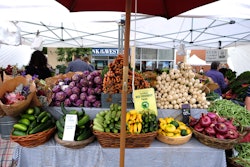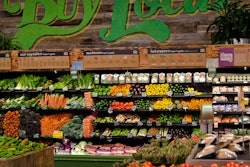
The local food movement has been booming over the last several years. The number of farmers’ markets across the country has nearly doubled in the last decade, and a recent Pew Research Center poll found that a majority of people in the United States had bought locally grown produce in the previous month. The enormous interest in eating locally has even led to the coinage of a new word: locavore.
Local food production and consumption offer a variety of benefits, which two legal scholars, Patricia Salkin and Amy Lavine, discuss in a recent paper. Because of these purported benefits, Salkin and Lavine argue that local and state governments should follow the example of some of their peers and update their zoning and land use regulations to encourage more local food production.
Salkin and Lavine tout the advantages of “foodsheds”—geographic areas surrounding urban areas that can provide some of the food that city-dwellers consume. For instance, Salkin and Lavine point to potential environmental benefits: Small farms may use fewer chemicals and produce less waste than large industrial farms. And it requires much less fuel to transport produce to a nearby city than it does to transport produce across the country.















